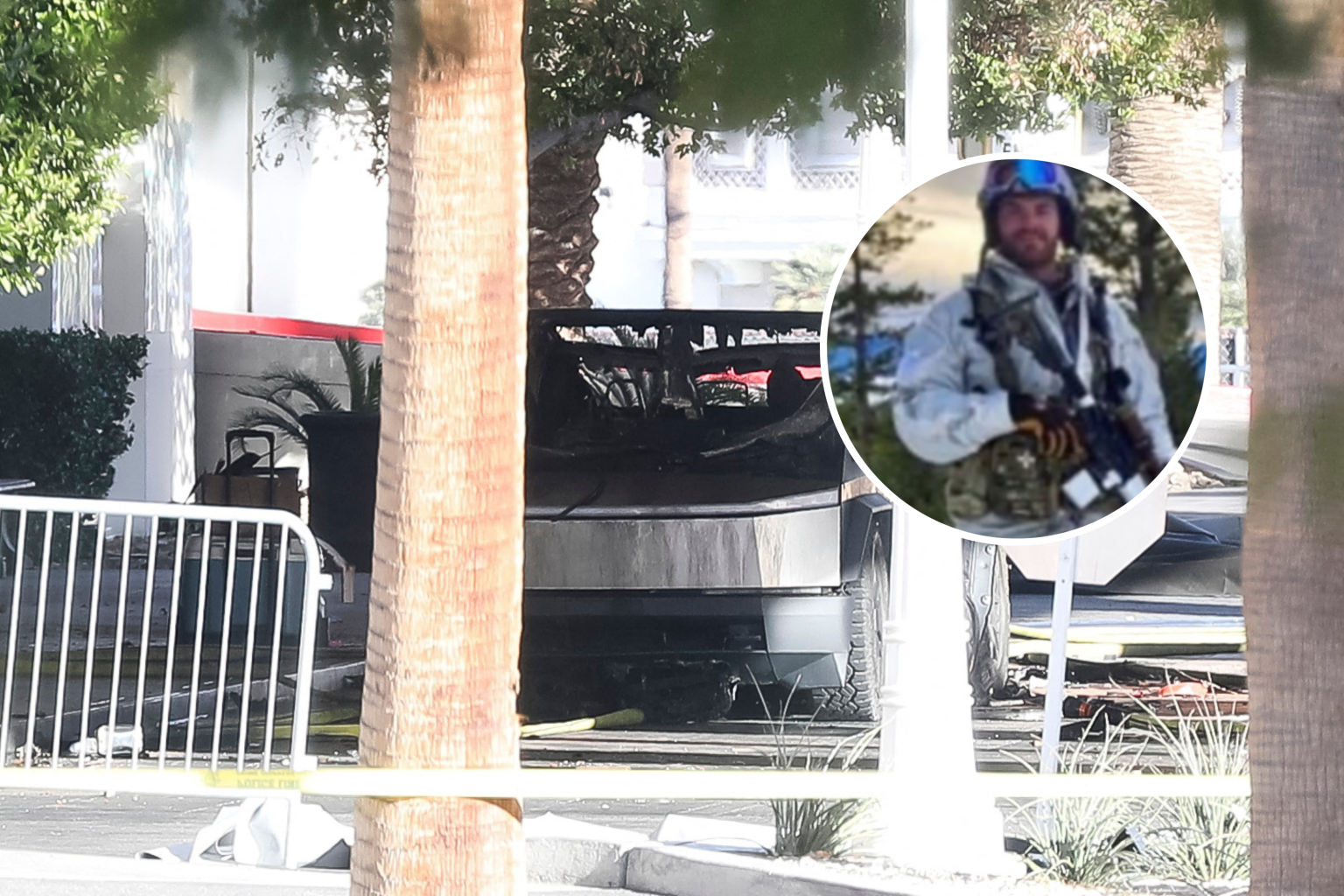The explosion of a Tesla Cybertruck outside the Trump International Hotel in Las Vegas on January 1, 2025, resulted in the death of the driver and minor injuries to seven others. Authorities later identified the driver as Matthew Livelsberger, a 37-year-old former member of the Army’s elite special forces unit. The incident, initially shrouded in mystery, quickly became a focal point of investigation due to the involvement of a high-profile vehicle and its proximity to a property associated with the President-elect. The explosion, caused by firework mortars and camp fuel canisters placed inside the vehicle, raised immediate concerns about a potential act of terrorism, especially given the recent vehicle attack on pedestrians in New Orleans.
The investigation into Livelsberger’s background revealed a history that, while not indicative of violent tendencies, provided some context to his past. Records obtained by Newsweek revealed two misdemeanor charges against Livelsberger in 2011 in Franklin County, Ohio, both related to speeding. While these minor infractions offered little insight into the motivation behind the Las Vegas incident, they formed part of the broader effort to piece together Livelsberger’s profile. His military service, specifically his time with the special forces at Fort Liberty (formerly Fort Bragg) in North Carolina, added another layer to the investigation, prompting authorities to explore various potential motives, including political ones.
The circumstances surrounding the explosion raised numerous questions about security and potential vulnerabilities. The Cybertruck, rented through the peer-to-peer car sharing app Turo, had been driven from Colorado to Las Vegas, raising concerns about the vetting process for renters and the potential for vehicles to be used for nefarious purposes. The presence of explosive materials inside the vehicle also highlighted the challenges of preventing individuals from carrying out attacks using seemingly ordinary objects. The fact that the explosion occurred in the valet area of a high-profile hotel like the Trump International raised further questions about security protocols and the potential for similar incidents in the future.
The response to the incident was swift and multifaceted. Law enforcement, including the Las Vegas Metropolitan Police Department and the FBI, immediately launched investigations to determine the cause of the explosion and identify any potential connections to other events. The FBI, while confirming their involvement, initially stated that there was “no definitive link” between the Las Vegas explosion and the New Orleans vehicle attack. However, the investigation remained open to all possibilities. The public response was equally rapid, with social media abuzz with speculation and reactions. Elon Musk, CEO of Tesla, commented on the robustness of the Cybertruck, claiming it had contained the explosion and minimized damage.
The aftermath of the explosion saw a wave of reactions from various parties. Eric Trump, an executive vice president at the Trump Organization, expressed gratitude for the swift response of emergency services and emphasized the hotel’s commitment to guest safety. Incoming first lady Melania Trump issued a statement condemning the violence and calling for peace. These responses underscored the gravity of the incident and its impact on the community. The investigation continues, with authorities focusing on understanding Livelsberger’s motive and determining whether the incident was an isolated act or part of a larger pattern.
The incident underscores the increasing complexities of security in a world facing evolving threats. The use of a readily available rental vehicle, the seemingly ordinary nature of the explosive materials, and the targeting of a high-profile location all highlight the challenges faced by law enforcement and security agencies. The investigation, still unfolding, promises to reveal more about the motivations behind the act and potentially inform future security measures. The incident also raises questions about the potential for readily available technologies, such as peer-to-peer car sharing apps, to be exploited for malicious purposes, necessitating a reevaluation of security protocols and risk assessment strategies.

